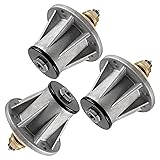All Categories



Mansfield Park (Barnes & Noble Classics Series)
Share Tweet








About Mansfield Park
Product Description &&LDIV&&R&&LDIV&&R&&LI&&RMansfield Park&&L/I&&R, by &&LB&&RJane Austen&&L/B&&R, is part of the &&LI&&RBarnes & Noble Classics&&L/I&&R&&LI&&R &&L/I&&Rseries, which offers quality editions at affordable prices to the student and the general reader, including new scholarship, thoughtful design, and pages of carefully crafted extras. Here are some of the remarkable features of &&LI&&RBarnes & Noble Classics&&L/I&&R: &&LDIV&&R New introductions commissioned from today's top writers and scholars Biographies of the authors Chronologies of contemporary historical, biographical, and cultural events Footnotes and endnotes Selective discussions of imitations, parodies, poems, books, plays, paintings, operas, statuary, and films inspired by the work Comments by other famous authors Study questions to challenge the reader's viewpoints and expectations Bibliographies for further reading Indices & Glossaries, when appropriate All editions are beautifully designed and are printed to superior specifications; some include illustrations of historical interest. &&LI&&RBarnes & Noble Classics &&L/I&&Rpulls together a constellation of influences―biographical, historical, and literary―to enrich each reader's understanding of these enduring works.&&L/DIV&&R&&L/DIV&&R&&LP style="MARGIN: 0in 0in 0pt"&&R &&L/P&&R&&LP style="MARGIN: 0in 0in 0pt"&&RFrom its sharply satiric opening sentence, &&LI&&RMansfield Park&&L/I&&R dealas with money and marriage, and how strongly they affect each other. Shy, fragile Fanny Price is the consummate "poor relation." Sent to live with her wealthy uncle Thomas, she clashes with his spoiled, selfish daughters and falls in love with his son. Their lives are further complicated by the arrival of a pair of witty, sophisticated Londoners, whose flair for flirtation collides with the quiet, conservative country ways of Mansfield Park.&&LBR&&R&&LBR&&RWritten several years after the early manuscripts that eventually became &&LI&&RSense and Sensibility&&L/I&&R and &&LI&&RPride and Prejudice&&L/I&&R, &&LI&&RMansfield Park&&L/I&&R retains &&LB&&RAusten&&L/B&&R’s familiar compassion and humor but offers a far more complex exploration of moral choices and their emotional consequences.&&LBR&&R&&L/P&&R&&LP style="MARGIN: 0in 0in 0pt"&&R&&LSTRONG&&R&&L/B&&R &&L/P&&R&&LP style="MARGIN: 0in 0in 0pt"&&R&&LSTRONG&&RAmanda Claybaugh&&L/B&&R&&L/B&&R &&L/B&&Ris Assistant Professor of English and Comparative Literature at Columbia University. She also wrote the Introduction and Notes for the Barnes & Noble Classics edition of &&LI&&RUncle Tom’s Cabin&&L/I&&R.&&LSTRONG&&R &&L/B&&R&&L/P&&R&&L/DIV&&R About the Author Amanda Claybaugh is Assistant Professor of English and Comparative Literature at Columbia University. She also wrote the Introduction and Notes for the Barnes & Noble Classics edition of Uncle Toms Cabin. Excerpt. © Reprinted by permission. All rights reserved. From Amanda Claybaugh's Introduction to Mansfield Park Mary Crawford is, or so it seems, the very model of a Jane Austen heroine. Spirited, warm-hearted, and, above all else, witty, she displays all the familiar Austen virtues, and she stands in need of the familiar Austen lessons as well. Like Elizabeth Bennet, the heroine of Pride and Prejudice (1813), she banters archly with the man she is falling in love with, and, like Elizabeth, she must learn to set aside her preconceptions in order to recognize that love. Like Emma Woodhouse, the heroine of Emma (1816), she speaks more brilliantly and speculates more dazzlingly than anyone around her, and, like Emma, she must learn to rein in the wit that tempts her at times to impropriety. But Mary Crawford is not the heroine of Mansfield Park (1814)—Fanny Price is, and therein lies the novel's great surprise. For Fanny differs not merely from Mary, but also from our most basic expectations of what a novel's protagonist should do and be. In Fanny, we have a heroine who seld




 (1)
(1)























